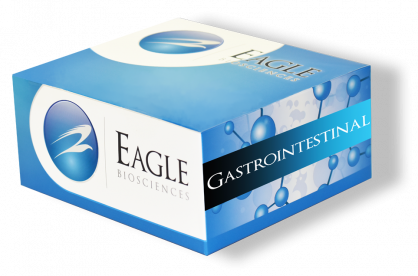Fatty Acid Binding Protein 4 (FABP4) ELISA Assay Kit
The Fatty Acid Binding Protein 4 (FABP4) ELISA Assay Kit is For Research Use Only
Size: 1×96 wells
Sensitivity: 0.39ng/mL
Standard Range: 0.39g/mL-25ng/mL
Incubation Time: 2 hours 35 minutes
Sample Type: Serum, plasma, and cell culture supernates
Sample Size: 100 µl
Alternative Names: Fatty-acid binding protein 4,A-FABP, aP2
Assay Principle
The Fatty Acid Binding Protein 4 assay is a quantitative sandwich ELISA. The immunoplate is pre-coated with a mouse monoclonal antibody specific for human FABP4. Standards and samples are pipetted into the wells and any Human FABP4 present is bound by the immobilized antibody. After washing away any unbound substances, a biotin labelled polyclonal antibody specific for human FABP4 is added to the wells. After wash step to remove any unbound reagents, streptavidin-HRP conjugate is added, after the last wash step, an HRP substrate solution is added and color develops in proportion to the amount of human FABP4 bound initially. The assay is stopped and the optical density of the wells determined using a microplate reader. Since the increases in absorbance are directly proportional to the amount of captured human FABP4, the unknown sample concentration can be interpolated from a reference curve included in each assay.
Related Products
Zonulin Stool ELISA
Lactoferrin Assay Kit
Pancreatic Amylase ELISA Assay



